MercoPress. South Atlantic News Agency
Environment
-
Wednesday, December 9th 2020 - 08:01 UTC
Venice off guard and under water as flood gates did not function on time
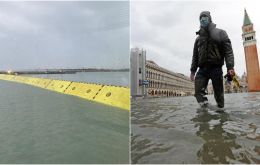
Venice was underwater on Tuesday as heavy rain and strong winds pushed into the lagoon city, catching the authorities off guard before they could activate the huge flood barriers that were rolled out two months ago.
-
Tuesday, December 8th 2020 - 14:26 UTC
Nepal and China agree that Mount Everest is 86cm higher: 8,848.86m
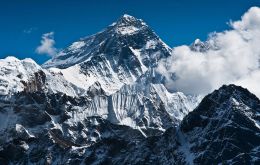
The highest point on Earth got a bit higher on Tuesday as China and Nepal finally agreed on a precise elevation for Mount Everest after decades of debate. The agreed height unveiled at a joint news conference in Kathmandu of 8,848.86m is 86cm higher than the measurement previously recognized by Nepal, and more than 4m above China's official figure.
-
Tuesday, December 8th 2020 - 09:41 UTC
Curbing Amazon deforestation conditions EU/Mercosur trade deal
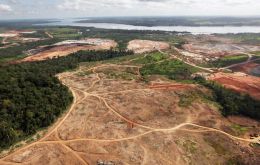
Until Brazil makes a political commitment to curb deforestation in the Amazon rainforest, the trade deal between the European Union and South America’s Mercosur trade bloc will not advance toward ratification in Europe, the EU’s envoy in Brasilia said.
-
Monday, December 7th 2020 - 09:20 UTC
World's largest iceberg approaching South Georgia: concerns it could get stuck in shallow waters

The world’s largest iceberg has been captured on camera drifting through the Southern Antarctic Front near the overseas British territory of South Georgia. British Forces South Atlantic Islands (BFSAI) used high-speed digital cameras attached to a military transport aircraft to capture rare images of the iceberg as it travelled towards the island.
-
Monday, December 7th 2020 - 09:06 UTC
Argentina launches the 2020/21 limited Antarctica campaign, with special care o no possible coronavirus contagion
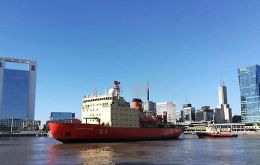
The official Argentine 2020/21 Antarctic season was launched last Friday with a ceremony at the Buenos Aires Navy pier where the icebreaker “ARA Almirante Irizar” was docked, but with no authorities boarding the vessel to avoid any possible coronavirus contagion.
-
Monday, December 7th 2020 - 09:06 UTC
Intermediate earthquake felt Sunday noon in northern Chile
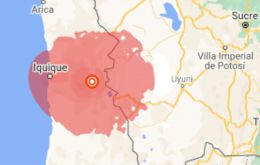
An intermediate magnitude 6.0 earthquake was reported around Sunday noon near Iquique, Provincia de Iquique, Tarapaca, Chile. According to the German Research Centre for Geosciences (GFZ), the quake hit on Sunday 6 December 2020 at 1.47 pm local time at an intermediate depth of 114 km.
-
Friday, December 4th 2020 - 09:28 UTC
Almost 40% of Scotland's seas are now covered by Marine Protected Areas
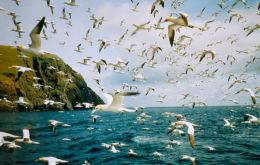
New sites have been designated as Marine Protected Areas (MPAs) to give extra security to some of Scotland's most vulnerable species and habitats. Minke whale, basking sharks and Risso's dolphins will be among a range of animals to be safeguarded.
-
Friday, December 4th 2020 - 08:40 UTC
“Make Amazon Pay” campaign supported by 400 lawmakers from 34 countries

More than 400 lawmakers from 34 countries have signed a letter to Amazon.com Inc boss Jeff Bezos backing a campaign that claims the tech giant has “dodged and dismissed … debts to workers, societies, and the planet,” organizers said.
-
Thursday, December 3rd 2020 - 09:47 UTC
2020 on course to be one of the three warmest years ever recorded
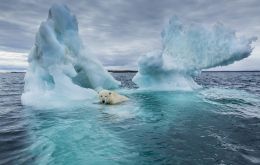
This year is on course to be one of the three warmest ever recorded and could even top the record set in 2016, the United Nations said on Wednesday. The past six years, 2015 to 2020, are therefore set to make up all six of the hottest years since modern records began in 1850, the UN's World Meteorological Organization (WMO) said in its provisional 2020 State of the Global Climate report.
-
Thursday, December 3rd 2020 - 09:39 UTC
RRS Sir David Attenborough delivered, BAS readies for intensive training and Arctic ice trials next year
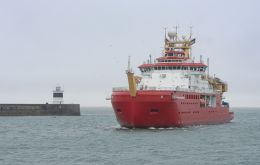
Britain’s new polar ship, the RRS Sir David Attenborough, has been handed over from Cammell Laird shipyard to the Natural Environment Research Council, NERC. Operated by British Antarctic Survey (BAS), the new polar ship will transform UK research in the polar regions. Its missions will be critical for understanding and making sense of our changing climate.
